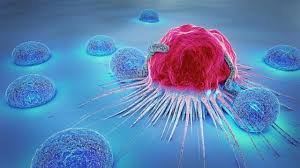and improving maternal and child health, while health services are not equipped to prevent, diagnose and treat cancers.
In 2019, more than 90 per cent of high-income countries reported that comprehensive treatment services for cancer were available in the public health system compared to less than 15 per cent of low-income countries.
“This is a wake-up call to all of us to tackle the unacceptable inequalities between cancer services in rich and poor countries,” said Dr. Ren Minghui, Assistant Director-General, Universal Health Coverage/ Communicable and Noncommunicable Diseases, World Health Organization. “If people have access to primary care and referral systems then cancer can be detected early, treated effectively and cured. Cancer should not be a death sentence for anyone, anywhere.”
Yet, progress in poorer countries is achievable. WHO and the International Agency for Research on Cancer (IARC) released two coordinated reports on World Cancer Day (February 4), in response to government calls for more research into the scope and potential policies and programmes to improve cancer control.
“At least seven million lives could be saved over the next decade, by identifying the most appropriate science for each country situation, by basing strong cancer responses on universal health coverage, and by mobilising different stakeholders to work together,” said Dr. Tedros Adhanom Ghebreyesus, Director-General, WHO.
WHO highlighted a wide range of proven interventions to prevent new cancer cases. These include controlling tobacco use (responsible for 25 per cent of cancer deaths), vaccinating against hepatitis B to prevent liver cancer, eliminating cervical cancer by vaccinating against HPV, screening and treatment, implementing high-impact cancer management interventions that bring value for money and ensuring access to palliative care including pain relief.
“The past 50 years have seen tremendous advances in research on cancer prevention and treatment,” said Dr. Elisabete Weiderpass, Director of IARC.
“Deaths from cancer have been reduced. High-income countries have adopted prevention, early diagnosis and screening programmes, which together with better treatment, have contributed to an estimated 20 per cent reduction in the probability of premature mortality between 2000 and 2015, but low-income countries only saw a reduction of five per cent. We need to see everyone benefitting equally.”
The challenge will be for countries to select treatments balancing considerations including cost, feasibility and effectiveness. Each government is tasked with choosing the appropriate innovative cancer therapies while recognizing that established treatments, many of which are very effective and affordable, could provide benefits for cancer without causing financial hardship.
The report aims to set the global agenda on cancer, mobilize stakeholders and help countries set priorities for investing in cancer control and universal health coverage. It introduces the principles, tools and current priority cancer control interventions in the context of the current and future cancer burden and opportunities.
The report focuses on prevention and offers the most comprehensive overview of relevant research available to date, ranging from descriptive aetiology, cellular and molecular biology, toxicology and pathology through to behavioural and social science. Key chapters include discussions on the impact of inequalities in cancer, vaccination and screening, genomic individual susceptibility to cancer and the finer identification of those at risk, which may allow ‘precision cancer prevention’.
source: TheGuardian

 The World Health Organisation (WHO) on Tuesday spelt out the need to step up cancer services in low and middle-income countries. WHO warned that, if current trends continue, the world will see a 60 per cent increase in cancer cases over the next two decades.
The World Health Organisation (WHO) on Tuesday spelt out the need to step up cancer services in low and middle-income countries. WHO warned that, if current trends continue, the world will see a 60 per cent increase in cancer cases over the next two decades.




